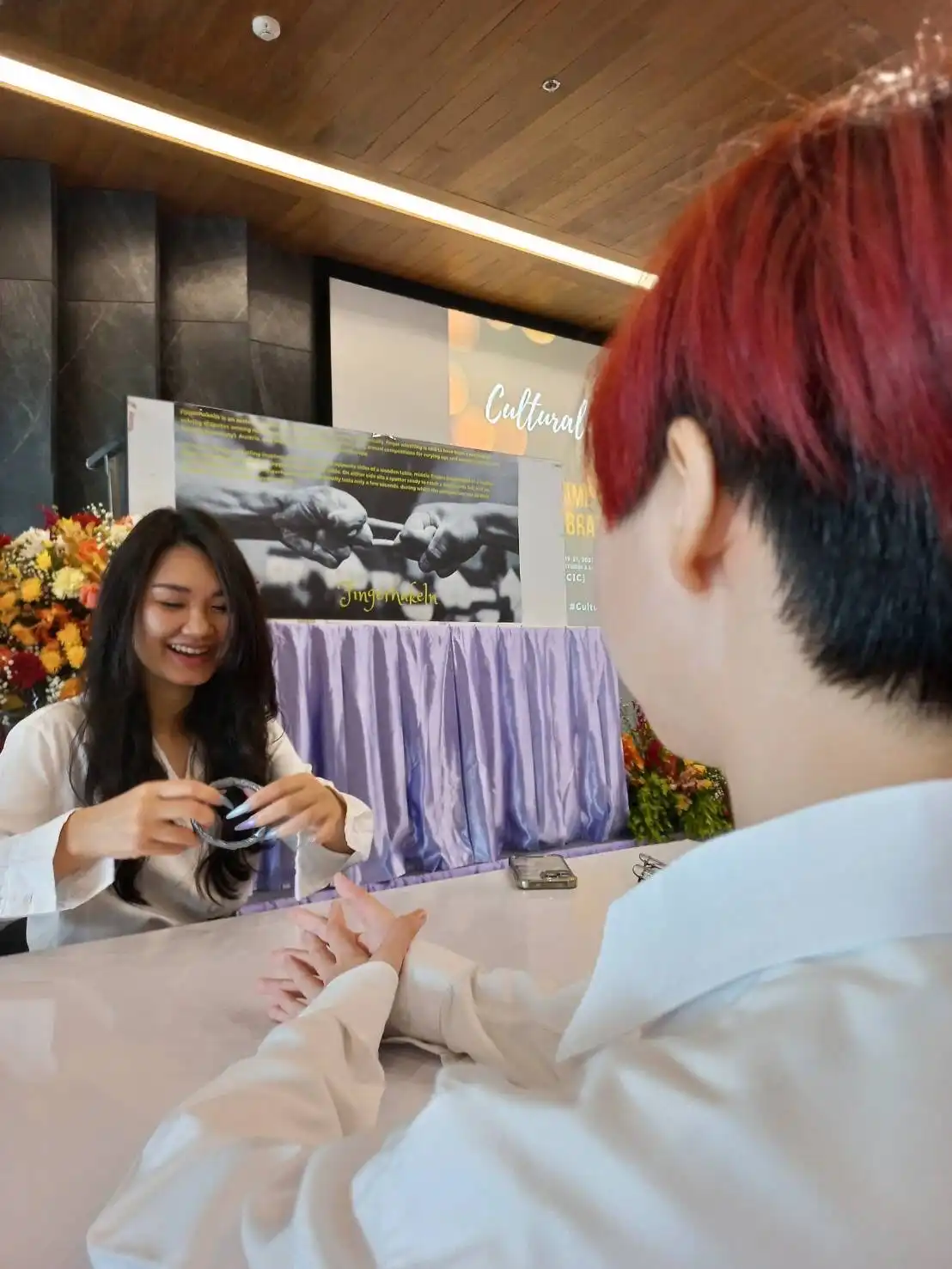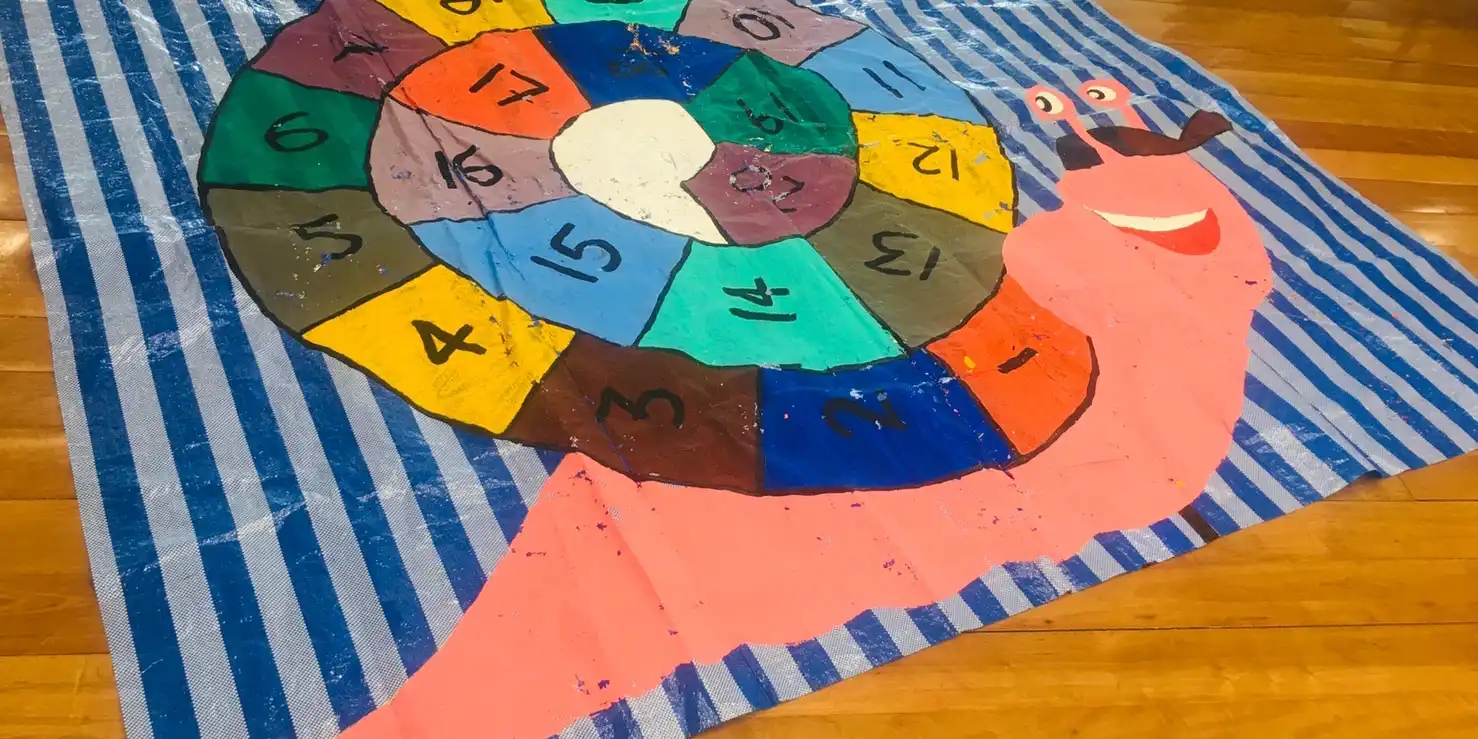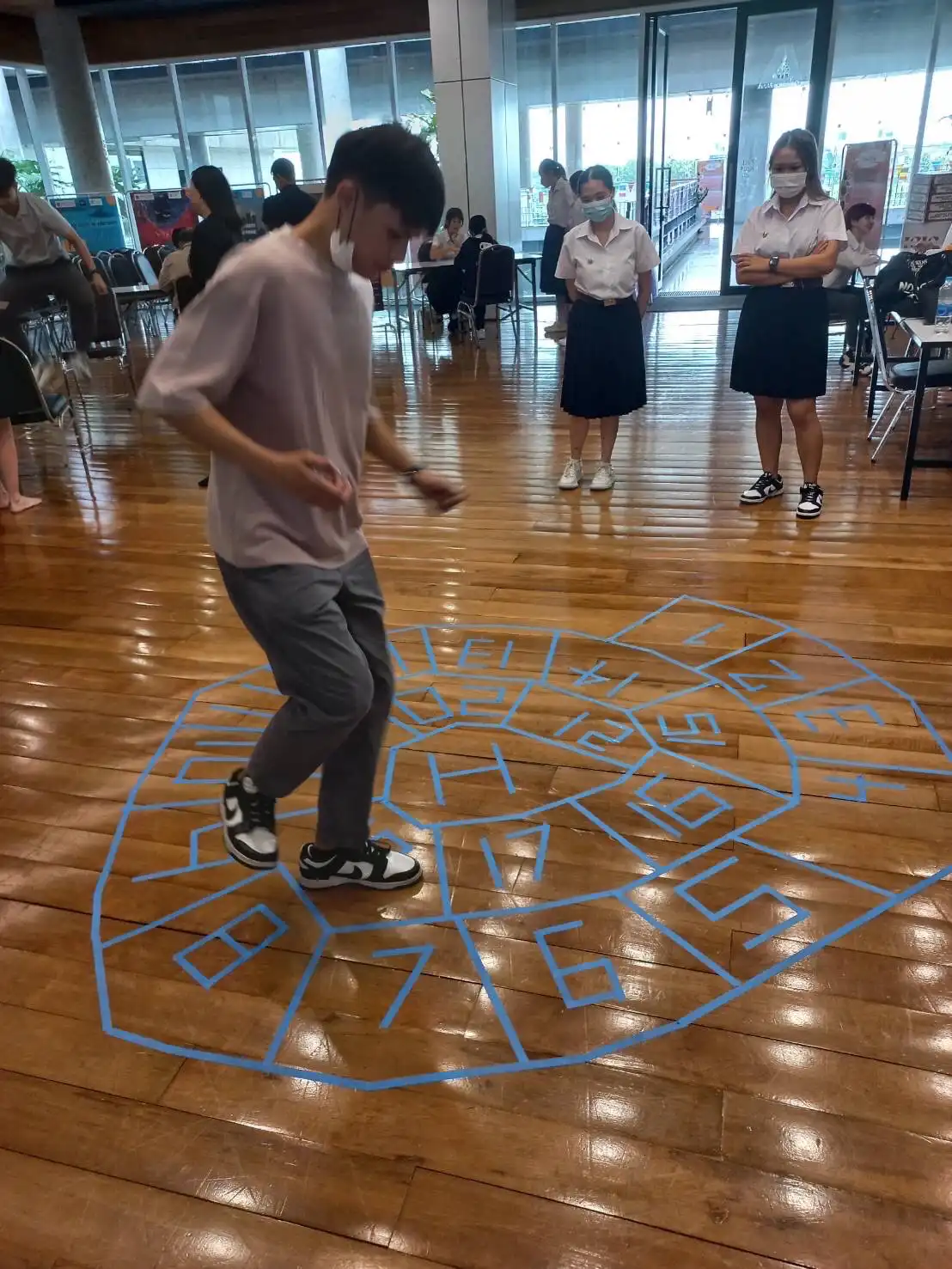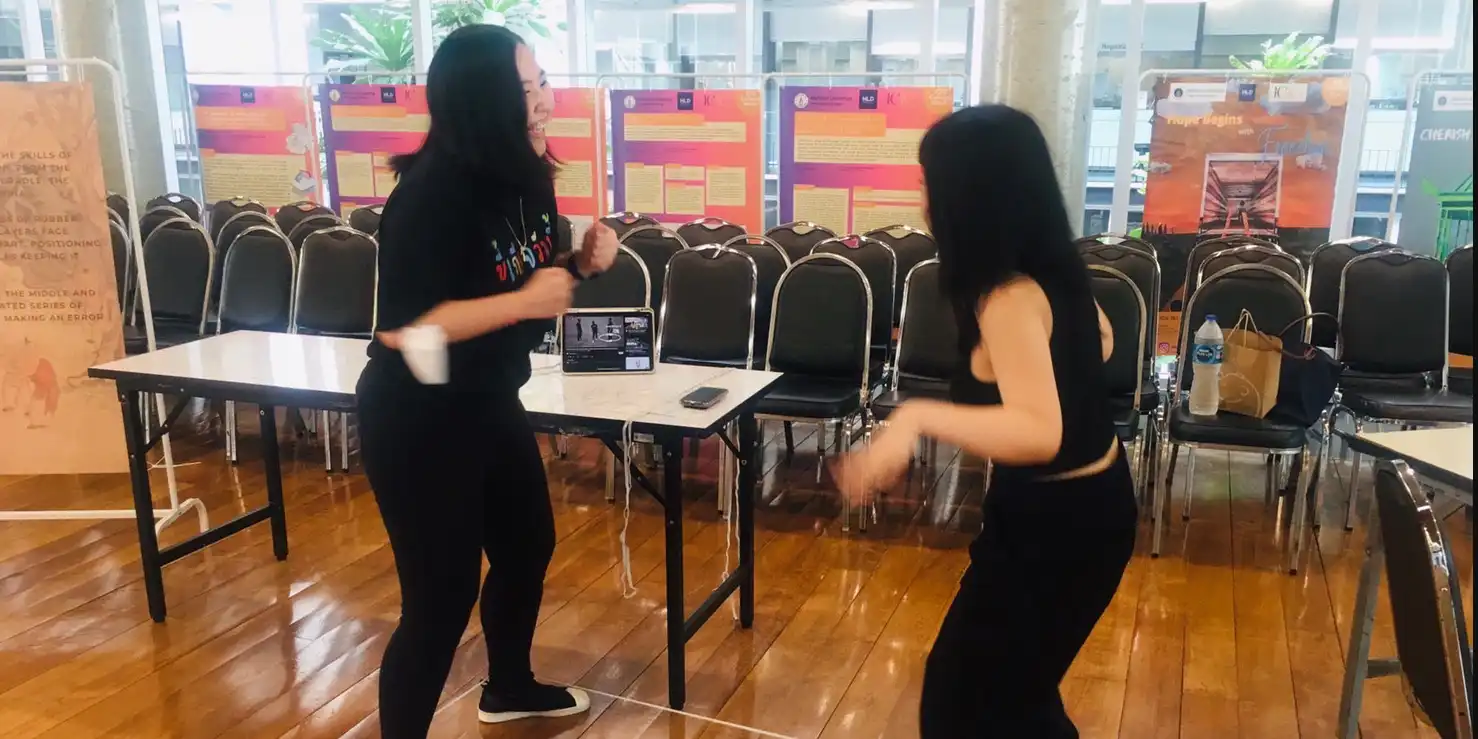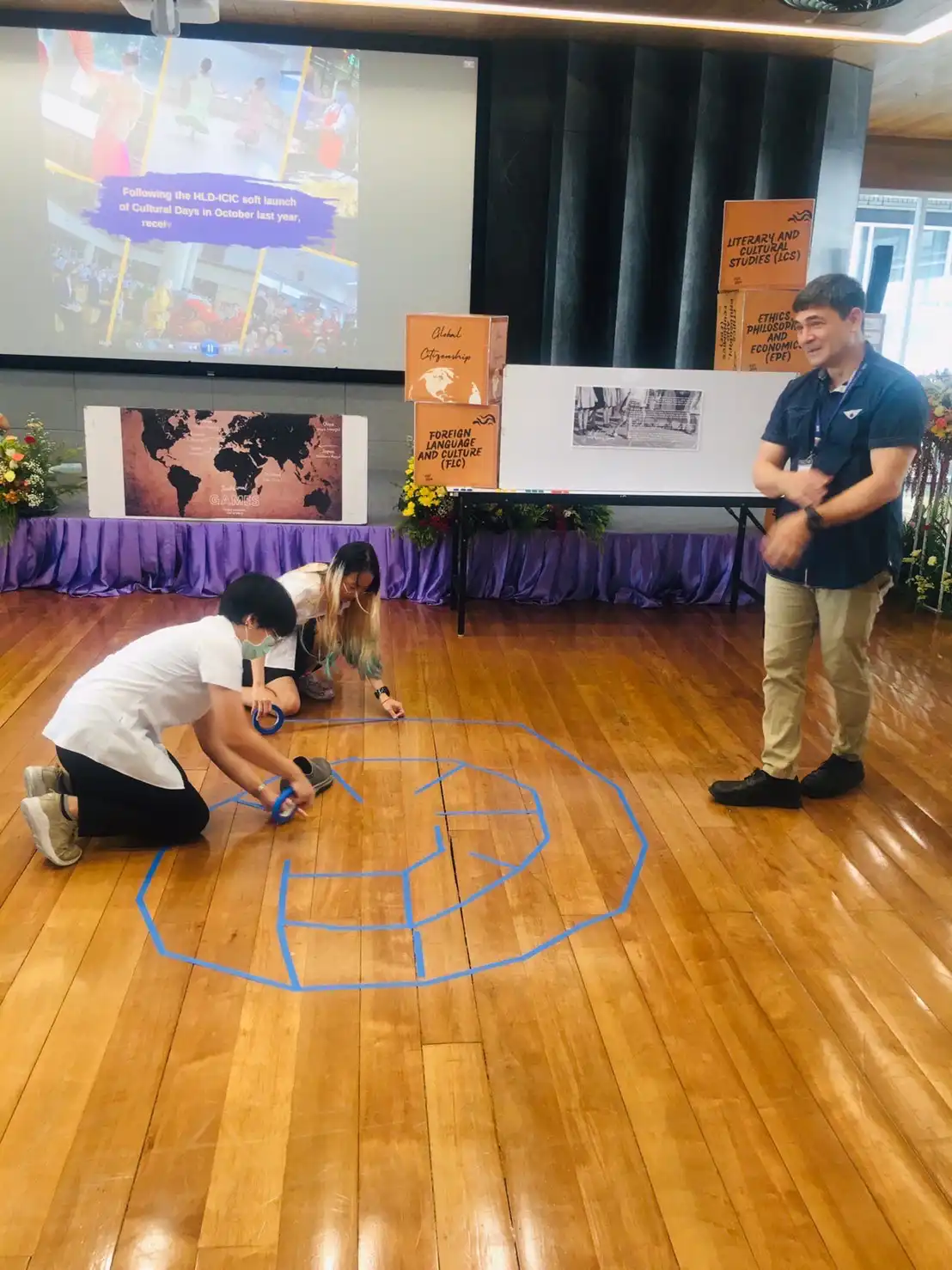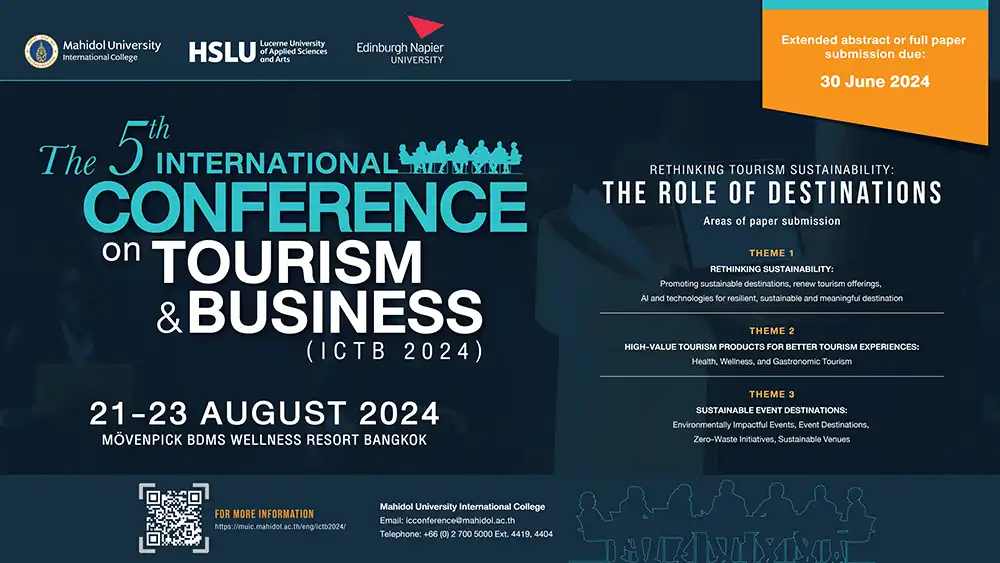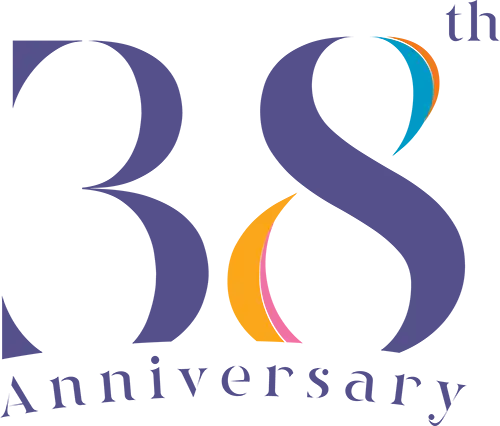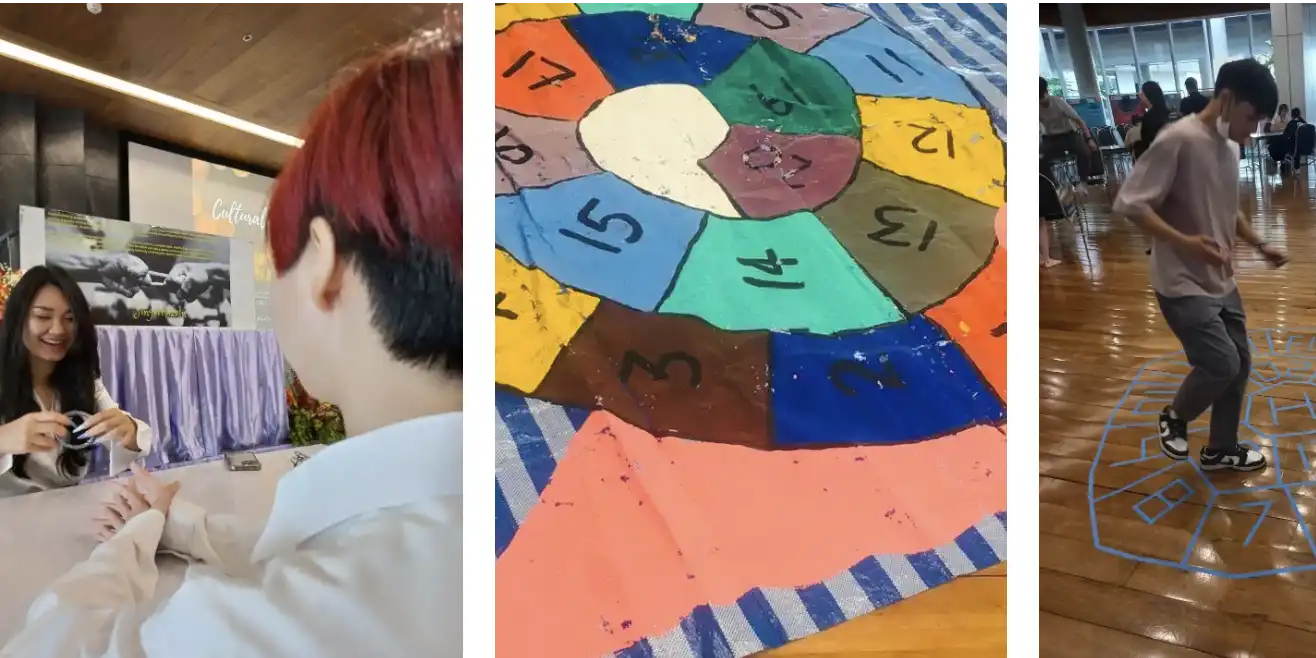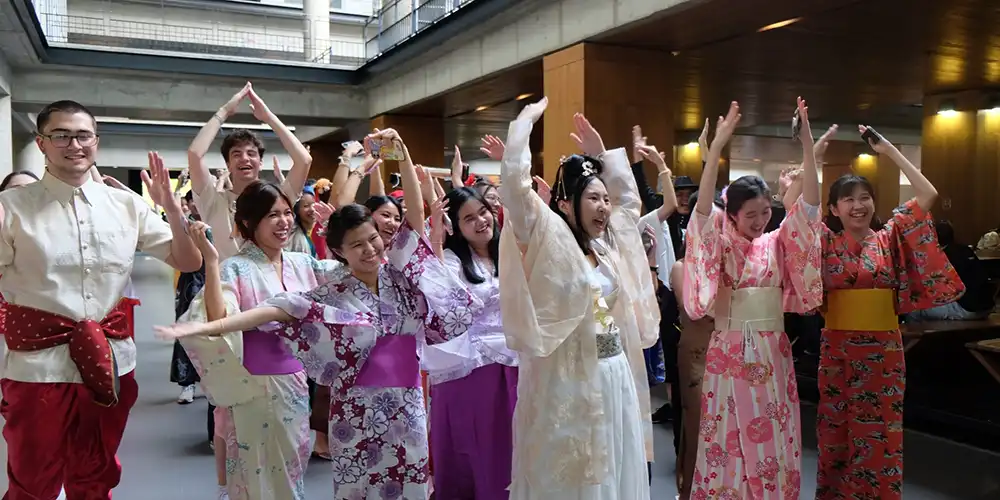Play These Games from Around the World!
June 22, 2023 2023-06-22 10:36Play These Games from Around the World!
Not only the outdoors or athletic types but also those who still enjoy the games of their childhood days had a great time during the “World Traditional Games” held on June 20, 2023 at Charinyarasami Hall in Aditayathorn Building. What’s more fun is that children’s traditional games from other countries were also played!
As the event’s title suggested, “World Traditional Games” featured games representing the countries whose languages are offered by the Intercultural Studies and Languages (ICIC) Program, namely, French, Spanish, German, Japanese, Chinese and Thai.
Organized by Mr. Roman Chiransanta, Physical Education (PE) Program Director of the Humanities and Language Division of Mahidol University International College (MUIC), the event was a big hit during the recently concluded “Cultural Week.” Numerous students participated in the games which were facilitated by Ajarn Roman and assisted by his colleague Mr. Russell Pattinson and 14 ICIC students.
The games included:
L’Escargot from France – hopscotch-like game with a twist: instead of square and rectangular blocks painted on the ground, this game’s steps went in a circular way much like the round shell of a snail, hence the French word escargot.
Chapas from Spain – a game where players flick bottle caps through a serpentine track laid on the ground. If a bottle cap flew off the track or was hit by another bottle cap, then the player has to start all over again. The player who manages to get his bottle cap through the finish line first wins the game.
Fingerhakein from Germany – a type of finger wrestling in which two men sat at opposite sides of a table and have their middle fingers interlocked in a leather band. Each of them would then struggle to pull his opponent to his side in order to win, with an umpire presiding over the match.
Chinese Jump Rope from China – two players stand across each other, connected by a string of rubber bands tied together and slung around their ankles. A third player then jumps across the rubber band string performing a designated series of moves at the same time trying to avoid touching the rubber bands.
Oshikura Manju from Japan – a friendly shoving game among Japanese children, players gather inside a circle drawn on the ground, their backs against each other. They chant “Oshikura manju oserete nakuna! (Oshikura manju don’t cry when you get shoved!).”
Len Choa from Thailand – a checker-like board game also known as “Leopard Hunt Game” wherein players acting as leopards with their tokens try to corner the lone lion. On the other hand, the lion can jump over the leopards and “eat” them.
Ajarn Roman said that he too had fun conceptualizing and planning the event: “As a person who is into sports and enjoys participating and viewing a wide variety of physical activities, I found doing the research on the game’s most interesting and enjoyable. Some of these are only children’s games but the background behind some of them and how they came to be is fascinating. Take the German game of Fingerhakein. Originally this was meant to settle disputes. The Japanese game of Oshikura Manju, was used to keep little children warm during winter. While Chinese Jump Rope dates back to the 7th Century and the Thai game of Len Choa was documented by Captain James Low in 1839 in an English periodical.”
_______________
Have fun and stay healthy! As part of its general education courses, MUIC offers a wide variety of Physical Education (PE) courses—from individual to dual to team categories. For a list of these PE courses, just click on this link:
